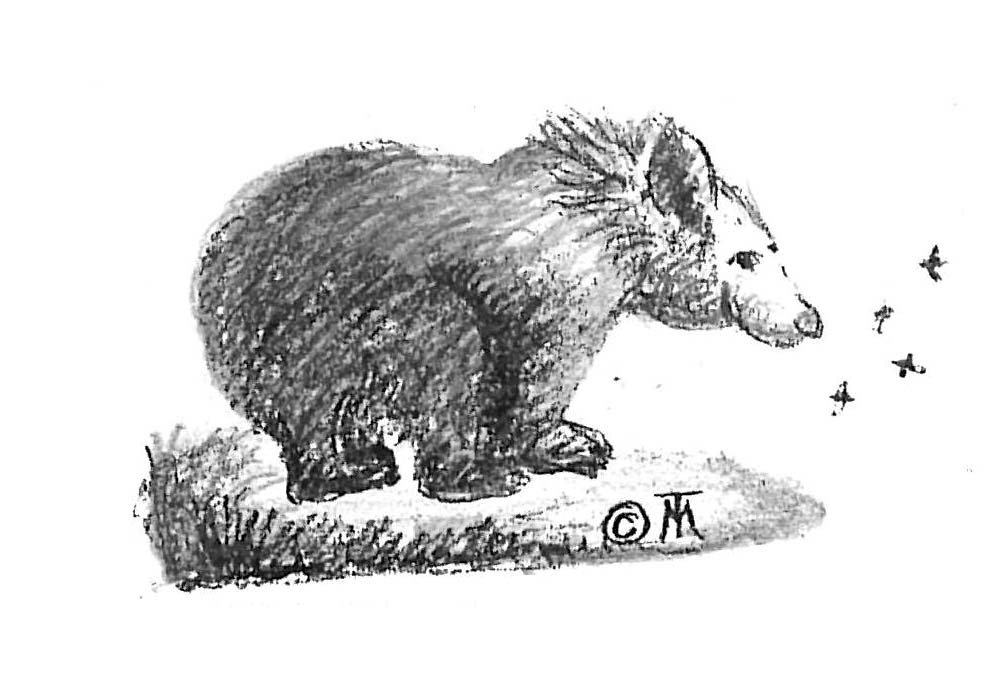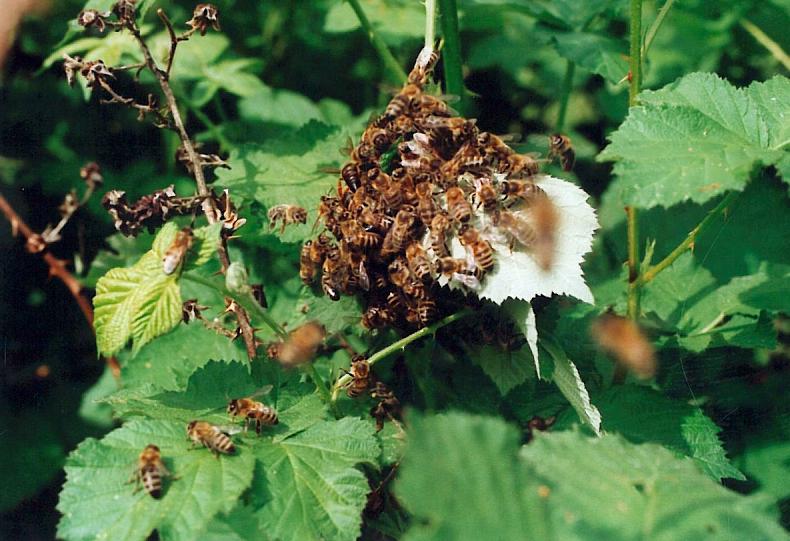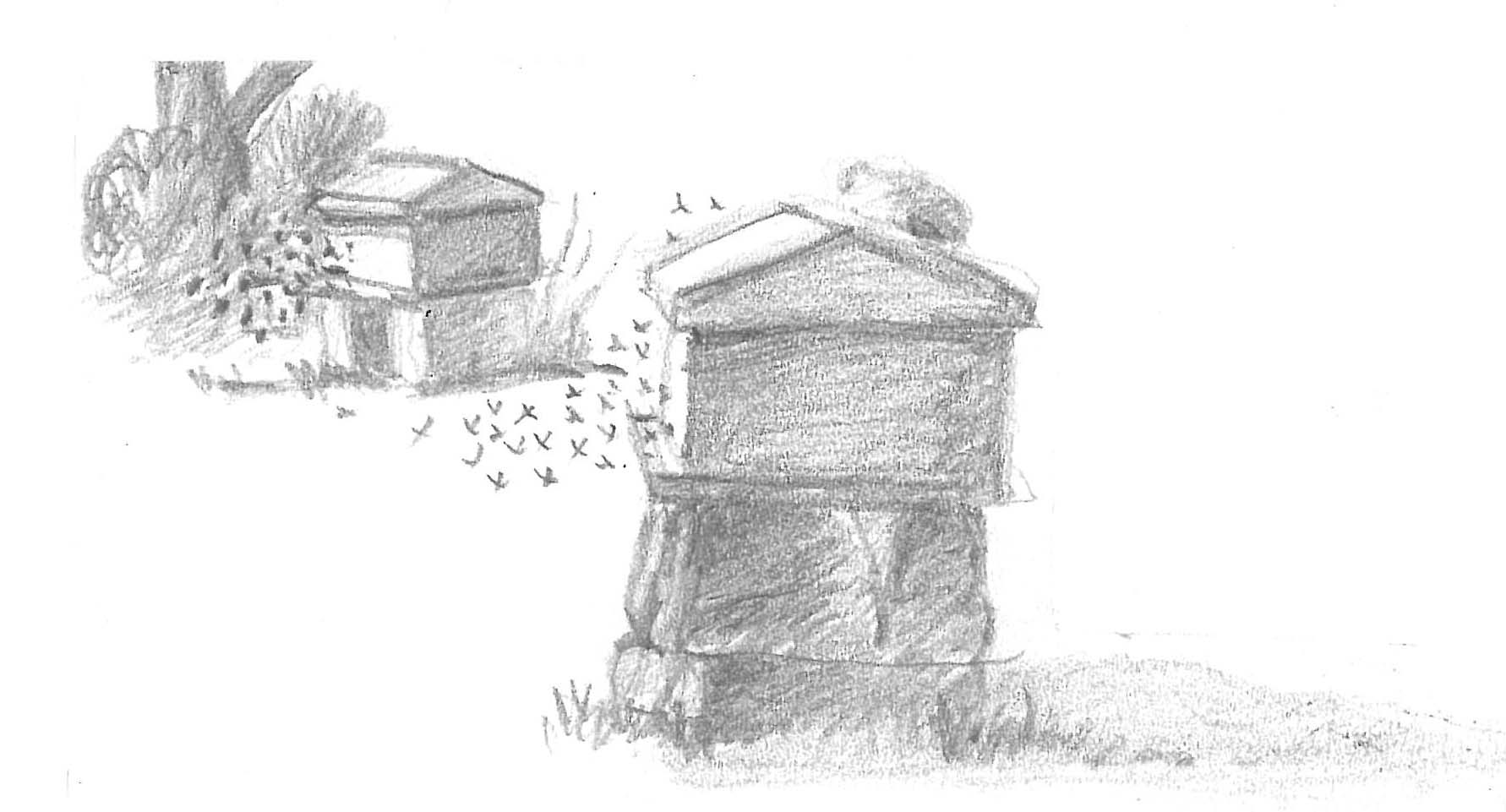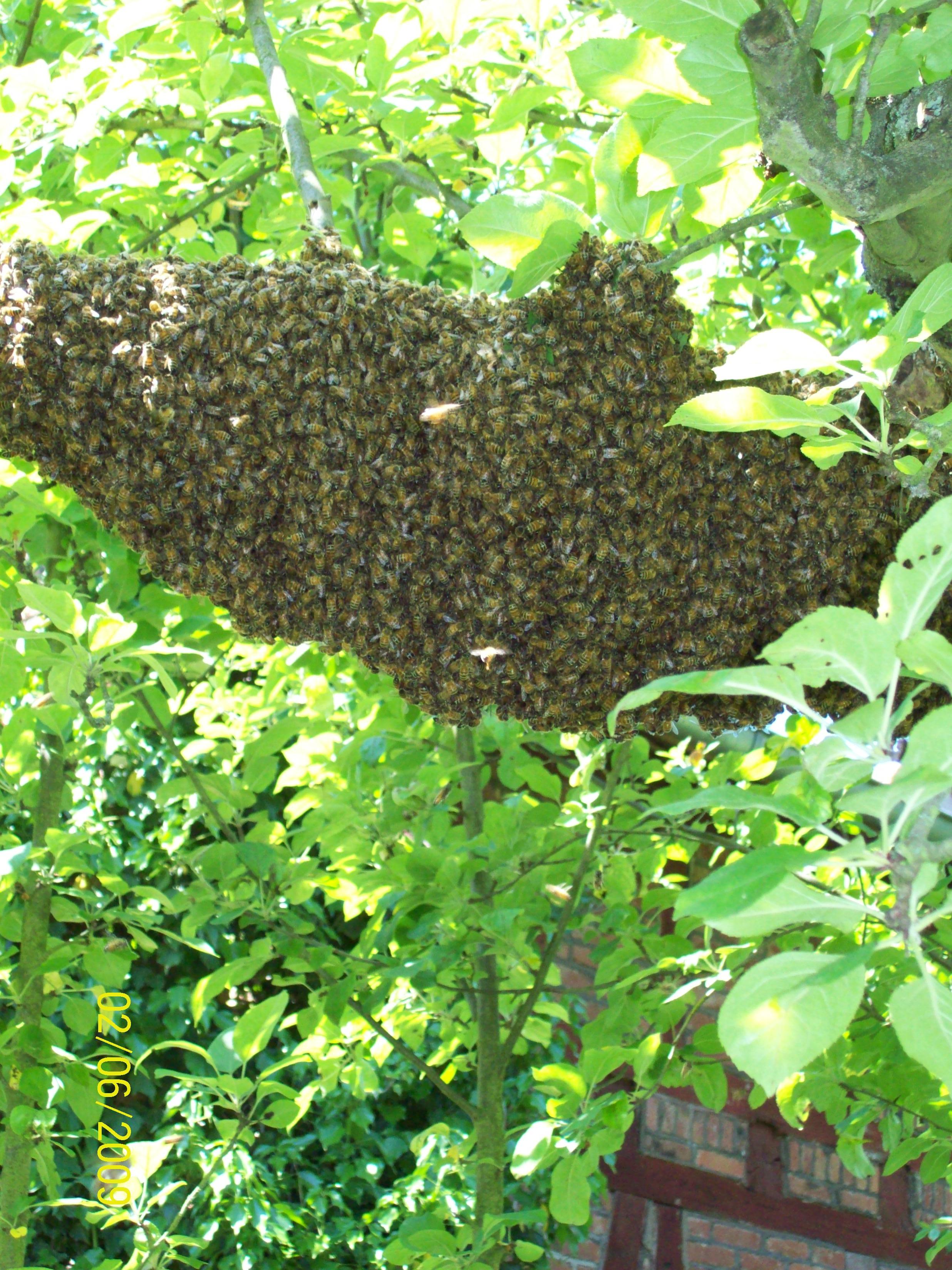



Sign
up for bee-therapy | Beauty-cure
| Anti-aging | Infertility
| Cancer
of the breast | Hashimoto-Thyreoiditis
|
Crohn's disease
Rheumatism
| Juvenile idiopathic
arthritis | Heart
diseases | Arteriosklerosis
| MS |
Diabetes
| Neurodermitis
| Obesity |
Depression
and Psychosis
Allergies
| Alzheimer
/ Parkinson | Diseases
of the kidneys | Pancreas
| how
to improve fitness of the body
Propolis
| Beeswax | Royal
Jelly | Organic Honey |
Comb
in the Comb | Raw Honey
| Organic Beekeeping
Basic Course
Expertise
| Courses | Home
| Research | Save
Beecolonies-Bienenpatenschaft | Certification
| Training Apitherapy
Genetic
Engineering, Seed Treatment And Bees
It's time to
write a short article on that topik, isn't it? Especially because one day
a "honeybee-genom-project" is going to be established and I've been asked
several times to write something about influences of genetically engineered
plants on bees, about danger of terminator-technology, pesticides containing
the active substance IMIDACLOPRID like GAUCHOÒ , CHINOOKÒ
and others. About questions like: Are the states being overwhelmed by genetic
engineering industry? Why do beekeeping journals mention so little words
about it? Well, I discussed these topics already and they are still being
updated in the courses (1, 2) and are in parts discussed in the letters
(3).
However, there has been carried out a lot of scientific research on
genetic engineering and IMIDACLOPRID. Here I'll only concentrate on that
kind of scientific research which can be found in Germany - mainly supported
by industry or governmental funds. I'll give an example how scientific
research is being carried out in these matters.
Let's start with genetic engineering. New and great results can be expected
from the articles of Mr. Hedtke/PhD - because he didn't save any trouble
and expenditure in his examinations (4,5). In the German issue of the letters
(6) I discussed these examinations in more details. Here I'll give a short
summary to show how scientific research is being carried out in this matter.
Let's have a look into it.
For his examinations Mr. Hedtke needed to count and weigh up an endless
amount of pollen, flowers and anthers in his laboratory. Why not? He is
aquainted with this kind of work; but we'll not watch him counting, measuring,
comparing pollen or how to weigh them out. We are more interested in the
influences of these pollen from genetically engineered rape on honeybees.
But, I guess, at first, he still wants us to listen to his stories where
he all managed to find pollen:
"Darüber hinaus wurden im Winterrapsfeld Pollen sammelnde Wildbienen
gefangen, ihre Pollenladung abgestreift und anschließend im Labor
analysiert. Ebenso wurden am Rand des Rapsschlages fliegende Rapsglanzkäfer
(Meligethes asneus) gefangen und die am Körper haftenden Pollen bestimmt.
Zur Analyse des Honigs wurden den Bienenvölkern Waben entnommen und
der Honig volksweise gewonnen. Der Honig wurde mit Wasser verdünnt,
bei 3500 Umdrehungen pro Minute je 2mal für 10 Minuten zentrifugiert,
das Sediment wurde auf Objektträger überführt und bezüglich
der Rapstrachtnutzung lichtmikroskopisch analysiert. Je Präparat wurden
1.000 Pollenkörner bestimmt und ausgezählt, n = 22.000" (7).
Well, in the end he found more than 20.000 pollen - thus, we don't have
to be afraid that his institute may not have enough work! He is searching
for pollen at wild bees, some kind of beetles, in honeybees and in honey.
In doing this, he is not being altogether very soft with these animals.
He doesn't have any qualms about it to put them into a frigerator and freeze
them deeply, or to cut out the bee's honeysacks and stomachs.
"Um das Sammelgut der Honigbienen qualitativ zu untersuchen, wurden
sowohl im Freiland als auch, um zum Vergleich eine reine 'Rapstracht' zu
gewinnen, in Flugzelten Honigbienen gefangen und anschließend tiefgefroren.
Im Labor wurden die Honigblasen präpariert, die Pollen in den Sozialmägen
determiniert und gezählt sowie der Zuckergehalt refraktometrisch und
die Zuckerzusammensetzung mittels HPLC bestimmt" (8).
However, I don't want to enter a debate on animal experiments, although
this topic is worth discussing (see also Internet Course # 07); here we
want to know more about the results and insights our scientist found out.
Thus, he has been entrusted with this work, had been payed for it, what
kind of knowledge is he able to offer us now? Well, at least two times
he assures us, that his scientific research has been financially supported
from tax money (9). But looking at his results, we need to pay attention
that we do not fail to notice them, because what he calls results, other
would term it maybe sufficiently known facts. These words for instance
I almost failed to see:
"(...) and the result of this experiment shows rather clearly: it occurs
very often that the bees are flying out foraging during this honeyflow,
at the same time - as other insects do" (10).
Just imagine it! He really opened our eyes. Come what may. Whatever
he says, who wants to grumble about beeinstitutes? "We are allowed to accuse
the superfluous institutes and beescientists in Germany (in no country
of this earth do we have so many beeresearch institutes and 'beescientists'
like in Germany). Hypothetically we ask at this place once the surely legitimate
question: 'what are they doing actually???'"(11)
Is it then nothing what Mr. Hedtke has turned out regarding results?
"Finally I want to make a note: altogether it seems that the risk of cross-breeding
or cross-fertilisation is higher during floweringtime of summerrape, because
at that time all the cruciferae, who are compatible with rape, have their
main floweringtime" (12).
Doesn't it show an extremely developed talent for observation, when
he notices, that in summer more plants are flowering than in wintertime?
What does Mr. Hedtke concludes acurately?
"A risk of cross-fertilisation regarding genetically modified properties
needs to be estimated higher during floweringtime of summerrape, because
at that time also all compatible partners for cross-fertilisation are flowering"
(13).
Great! His colleagues will say. But why do we occupy ourselves such
a long time with him? Well, until now we got to know him as a hard-working
and industrious beescientist, sitting in his research institute in Hohen
Neuendorf and landing lucrative orders so as to have a steady job for himself
and his colleagues. He may, of course! We hadn't noticed him at all, if
his way of drawing a conclusion weren't so striking:
" It can't be expected that nectar- and pollenproduction of these rape
kinds and varieties do have any negative effects on beecolonies" (14).
If this kind of logic were only striking! Your hairs stand on end! What
is Mr. Hedtke concluding from his experiments? According to a rather strange
logic, it seems to me, just the opposite of what he should have concluded.
Who tells him, that there are no negative effects on beecolonies to be
expected? Only because he hasn't found anything? Or because other, better
known beescientists haven't found anything regarding their experiments?
"In respect of the examined winterrape-hybrids there is no danger in
that way, that there isn't any harm to the developement of beecolonies"
(15).
This sentence was still fresh in Mr. Hedtke 's mind and according his
kind of logic, he concludes with an argument by analogy: also my examinations
show "that no negative effects on beekeeping can be expected" (16). Truthfully,
I haven't met a greater eye-closer! And he just quotes articles written
by Picard-Nizou, Pham-Delègue and other (17), who should have made
him sit up and take notice, that especially in respect of negative effects
of transgenic rape pollen on bees and beekeeping - at other places I discussed
it in more details (18). Although he quoted this literature in his own
article, nothing dawned to him. Instead he spend time dealing with trivialities
and outward appearances: "The small differences regarding the weigh of
anthers and extend of pollen corns shouldn't be of any relevance to beekeeping,
especially regarding the amount of pollen for the colonies" (19). Did you
expect something else from Mr. Hedtke? Maybe; is he a special case or do
we find these kind of scientists today more frequently? What is the matter
with some of our scientists? But seriously, do you think we can trust scientists
like Mr. Hedtke, if they offer us their proof, that genetic engineered
crops do not cause any harm to bees? Any fairy tale comes from more reliable
sources than these conclusions.
Almost the same apply to scientific research on chemical compounds for
seed treatment like IMIDACLOPRID in Germany. I discussed it in more details
at other places (20). Is it any wonder that there have been carried out
similar results? The conclusions of that scientists sound similar to the
above mentioned conclusions: "there isn't any harm to the developement
of beecolonies" , "no negative influences on bees". And isn't it surprising
how well the results go with the intentions of those people who are selling
insecticides? And do you think a scientist is independent enough if he
gets the funds from those people? Of course he is - you just need to turn
a blind eye!
I for my part prefer to open my eyes and keep on searching for the truth,
instead of closing all available eyes.
Notes
*)
More information and address source for Bee-produce from beekeeping
considering the character of bees - for instance: comb honey with
natural cristalization (not heated) and honey from natural combs
(neither extracted nor stirred nor heated before filling) as well as pure
beewax without residuals under :
List
of beeproduce
Centre
for social Medicine and natural Apitherapy
Centre
for Ecological Apiculture.
Beekeeping
courses (practical and distance) in the Centre for Ecological Apiculture:
start now with ecological top-bar-beekeeping for beginners!!
**)
see also "Apicultural
Review Letters I"
1) THIELE UND THIELE CONSULT, 1999-2002: Internet Course
# 05 - Hazards to bees (Pesticides and GE-crops); GE-crops in the world;
recommendations for beekeepers. Bad Sooden/Germany.
2) THIELE UND THIELE CONSULT, 1999-2002: Organic beekeeping
Internet Course # 03 - Part III. Bad Sooden/Germany.
3) Thiele, M., 2002: Letters on organic beekeeping and
more ... part II and III. Bad Sooden/Germany.
4) Hedtke, C. 2000a: Nektar- und Pollenproduktion transgener
und konventioneller Rapsblüten. Dt. Bienen Journal 8 (3) : 21-22,
Berlin/Deutschland.
5) Hedtke, C. 2000b: Gentechnisch veränderter Raps
als Trachtquelle von Honig- und Wildbienen bei Freisetzungsversuchen. Dt.
Bienen Journal 8 (4) : 19-21, Berlin/Deutschland.
6) Thiele, M., 2001: Briefe zur wesensgerechten Bienenhaltung
Teil I, N° 1-24. Bad Sooden/Deutschland.
7) Hedtke, C. 2000a.
8) Hedtke, C. 2000b.
9) Ibid.
10) Ibid.
11) Koch, K.-R. 1997: Api-flash - kurz belichtet. News
& Infos rund um die Imkerei. Imkerei-Technik Magazin 2 (4): 4-5. Oppenau/Schwarzwald/Deutschland.
12) Hedtke, C. 2000b.
13) Ibid.
14) Hedtke, C. 2000a.
15) Ohe, W. von der; Dustmann, J.H. und Ohe, K. von der
1999: Untersuchung von Rapsblüten restaurierter Winterrapshybriden
und Liniensorten auf Unterschiede im Pollengehalt. Dt. Bienen Journal 7
(4) : 13-14, Berlin/Deutschland.
16) Hedtke, C. 2000a.
17) Picard-Nizou A. L., Pham-Delègue M. H., Kerguelen
V., Douault P., Marilleau R., Olsen L., Grison R., Toppan A., Masson C.,
1995: Foraging behaviour of honey bees (Apis mellifera L.) on transgenic
oilseed rape (Brassica napus L. var. Oleifera). Transgenic Res., 4, 270-276.
18) See note 2.
19) Hedtke, C. 2000a.
20) Thiele, M., 2002: Letters on organic beekeeping part
III. Bad Sooden/Germany. See also Organic beekeeping Internet Courses #1-3
(new edition 3/2002).
More on side effects of Genetic engineering and
pesticides, especially on bees and landscape
see further articles
, Press
releases and expertises: Side
effects of Pesticides / GMOs - On the results
of the socalled "third industrial revolution"
Beekeeping
courses (practical and distance) in the Centre for ecological Apiculture:
start
now with ecological top-bar-beekeeping for beginners

